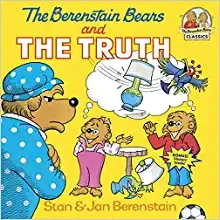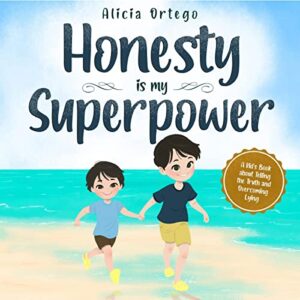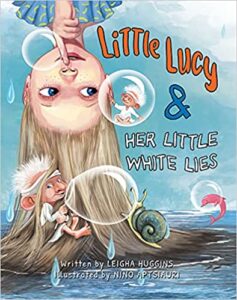
Creating an honest environment in the classroom is one of the most important focuses for any parent, teacher, school counselor, or child therapist. We all know that teaching children to tell the truth from a young age is essential for their growth into mature adults. However, knowing how to foster honesty effectively can often be confusing and intimidating. That’s why we have pulled together these creative strategies to help you create an environment where children feel comfortable expressing their honest thoughts and opinions without fear of judgment or ridicule. Whether your child has experienced difficulty being truthful in the past or you are looking to further enhance honesty in your classroom, these strategies can make all the difference!
Establish Clear and Appropriate Boundaries

Establish a set of clear rules and expectations for your classroom to foster an honest environment.
I’ve seen firsthand the importance of establishing clear and appropriate boundaries in all aspects of a child’s life. In the classroom, this means setting up a set of rules and expectations that create a safe and honest environment for all students. These boundaries help students understand what is expected of them and provide a foundation for mutual respect between students and teachers. With clear boundaries, students can thrive academically and emotionally while feeling secure and supported in their classroom environment. So, take the time to put together a set of rules that work for your classroom and watch as it transforms into a space where learning and personal growth flourish.
Let Your Students Take Ownership

Encourage your students to take ownership of their learning by allowing them to develop creative solutions and ideas to foster an honest classroom environment.
I have seen the power of letting kids take ownership of their learning. When given the space to think for themselves and come up with creative solutions, children often surprise us with their ingenuity and resourcefulness. Encouraging this type of independent thinking also fosters a sense of honesty and openness in the classroom. By giving students ownership over their learning experience, they feel empowered to express themselves and engage with the material in a way that works for them. So next time you’re thinking about how to support your students best, try taking a step back and letting them lead the way. You might be surprised by what they come up with!
Practice What You Preach

Model the behavior you want to see in your students by being honest, open, and transparent with them yourself.
I can tell you that modeling the behavior you want to see in your students is one of the most effective ways to help them develop skills and improve their behavior. When you are honest, open, and transparent with your students, you are setting an example of how they should interact with others. By showing them that it’s okay to be vulnerable and express themselves, you are helping them build confidence and trust in themselves and others. It’s important to remember that children learn primarily by example. If you want to foster a culture of honesty and openness in your classroom, you need to practice what you preach. So, be authentic in your interactions with your students and encourage them to do the same. Trust me, and you won’t regret it.
Use Positive Reinforcement

Praise students when they are honest and set positive examples for others in the class to follow.
I strongly believe that positive reinforcement is key when it comes to building honesty in children. Praising students when they exhibit honesty boosts their confidence and self-esteem and sets a positive example for their peers. When we acknowledge and encourage these qualities in our students, we create a safe and supportive learning environment for everyone. As a result, students are more likely to trust one another and feel comfortable sharing their thoughts and ideas in the classroom. By focusing on positive reinforcement, we can help our students develop the values and skills needed to succeed in school and life.
Ask Open-Ended Questions

Ask questions that require thoughtful answers rather than just yes/no responses to get your students talking about honesty without feeling judged or pressured.
Asking open-ended questions is a great way to encourage children to express themselves freely. When talking about honesty, it’s important to create an environment where your students feel comfortable sharing their thoughts and feelings without feeling judged or pressured. Open-ended questions like “Can you tell me about a time when you were honest even though it was hard?” or “Why do you think honesty is important?” can spark thoughtful conversations that will help your students better understand the importance of honesty in their lives. So don’t be afraid to ask open-ended questions and watch your students open up about their experiences and perspectives in a safe and supportive space.
Offer Forgiveness

When mistakes are made, offer forgiveness so students don’t feel like they have failed if caught in an untruthful situation.
The importance of forgiveness in a child’s emotional development. When children make mistakes, it’s normal for them to feel like they’ve failed, especially if they’ve been caught in a lie. That’s why forgiveness is so important. By offering forgiveness, we give students a chance to learn from their mistakes without feeling like they’ve been completely defeated. It also creates a safe environment for them to be honest and learn from their missteps. As educators and caregivers, it’s our responsibility to teach children right from wrong and provide a supportive and compassionate environment for them to grow emotionally. So let’s offer forgiveness, show understanding, and be the positive role models that our children need.
It is fundamental to foster a nourishing and honest environment where children can learn and have growth. Establishing the right boundaries, allowing the student to take ownership, being a role model, offering positive reinforcement, and asking open-ended questions are some of the strategies that can be used to create and reinforce honesty in your classroom. Furthermore, forgiveness is key in this process as it sends a message of understanding and empathy, leading to greater trust among all. Remind your students that it is ok to make mistakes as long as they are learning from them. Create an atmosphere where honesty is valued, and mistakes help us become wiser individuals every day.

Activities you could do with your students:
1. Group Discussion: Divide the students into small groups and ask them to discuss the importance of honesty in their lives. Encourage them to share personal stories, examples, and experiences. Afterward, have each group present their findings to the class and lead a discussion involving everyone’s thoughts and ideas. This exercise will help your students better understand how honesty affects their lives and why it’s important.
2. Role-Playing: Use role-playing to show the students what happens when people are dishonest. Have two or three students act out scenarios in which one person lies, deceives, or cheats while another is honest. Afterward, discuss the consequences of each scenario with them and ask them why they think honesty is important. This activity can be an engaging way for your students to learn more about the effects of dishonesty and discover ways to make ethical choices in their everyday lives.
3. Games & Puzzles: Incorporate fun activities into your lessons using games and puzzles that focus on honesty. This could include things like crosswords, word searches, or team-building activities that require honesty and collaboration between students. Not only are these types of activities engaging and enjoyable for your students, but they can also be educational and help them practice their problem-solving skills while gaining a better understanding of the importance of honesty.
4. Rewards & Recognition: Lastly, reward and recognize good behavior when it comes to being honest in the classroom. Make sure to give compliments when you notice that someone is doing the right thing by being truthful and encouraging others to follow suit. Giving out small rewards such as stickers or recognition certificates can greatly incentivize children to continue practicing honesty in all areas of their lives.
By using these creative strategies to foster an honest environment in your classroom, you can help create a safe and supportive learning space where your students can thrive. It is essential that our young ones learn the value of honesty early on in life as it will shape their characters and morals as they grow up. As educators, let’s be good role models for our students, show understanding when mistakes are made, and celebrate the successes of being honest together.
Below Is Recommended Reading To Reinforce Honesty In Your Classroom.




